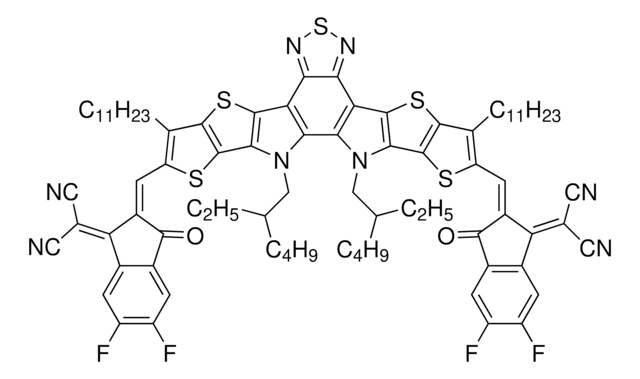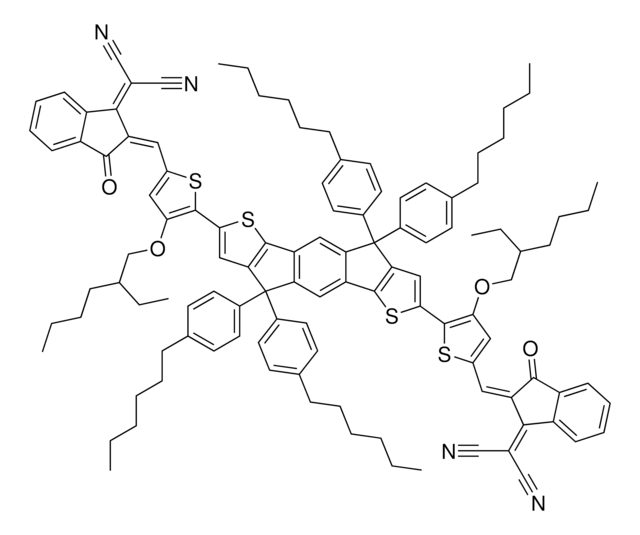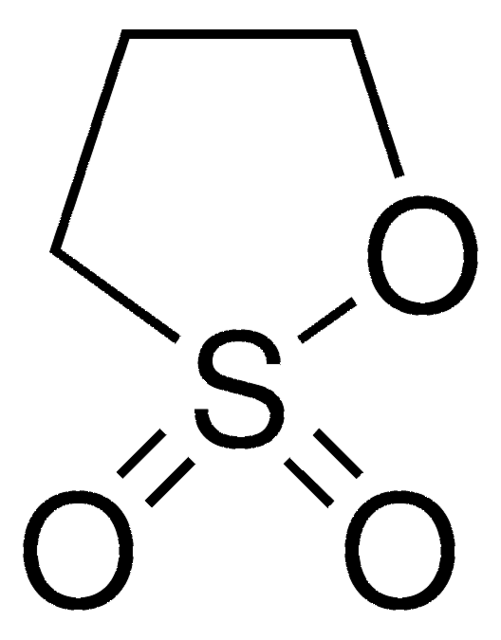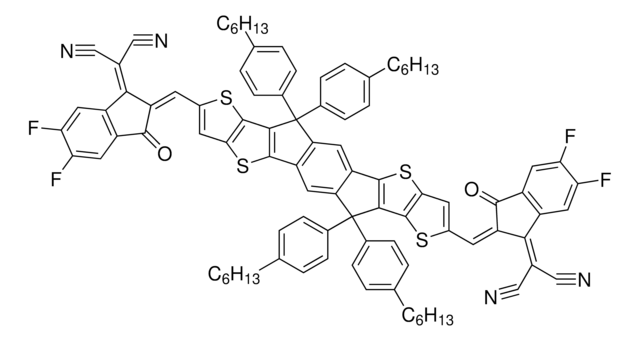900854
FBR
Synonym(s):
5,5′-[(9,9-Dioctyl-9H-fluorene-2,7-diyl)bis(2,1,3-benzothiadiazole-7,4-diylmethylidyne)]bis[3-ethyl-2-thioxo-4-thiazolidinone]
About This Item
Recommended Products
description
Band gap: 1.59 eV
Quality Level
Assay
≥97%
form
solid
solubility
chlorobenzene: soluble
chloroform: soluble
dichlorobenzene: soluble
Orbital energy
HOMO -5.61 eV
LUMO -4.02 eV
SMILES string
S1\C(=C/c2c3n[s]nc3c(cc2)c4cc5c(cc4)c6c(cc(cc6)c7c8n[s]nc8c(cc7)\C=C9/SC(=S)N(C/9=O)CC)C5(CCCCCCCC)CCCCCCCC)\C(=O)N(C1=S)CC
InChI
1S/C53H56N6O2S6/c1-5-9-11-13-15-17-27-53(28-18-16-14-12-10-6-2)41-29-33(37-23-21-35(45-47(37)56-66-54-45)31-43-49(60)58(7-3)51(62)64-43)19-25-39(41)40-26-20-34(30-42(40)53)38-24-22-36(46-48(38)57-67-55-46)32-44-50(61)59(8-4)52(63)65-44/h19-26,29-32H,5-18,
Related Categories
Storage Class Code
11 - Combustible Solids
WGK
WGK 3
Flash Point(F)
Not applicable
Flash Point(C)
Not applicable
Choose from one of the most recent versions:
Certificates of Analysis (COA)
Don't see the Right Version?
If you require a particular version, you can look up a specific certificate by the Lot or Batch number.
Already Own This Product?
Find documentation for the products that you have recently purchased in the Document Library.
Articles
Professor Chen (Nankai University, China) and his team explain the strategies behind their recent record-breaking organic solar cells, reaching a power conversion efficiency of 17.3%.
Our team of scientists has experience in all areas of research including Life Science, Material Science, Chemical Synthesis, Chromatography, Analytical and many others.
Contact Technical Service








